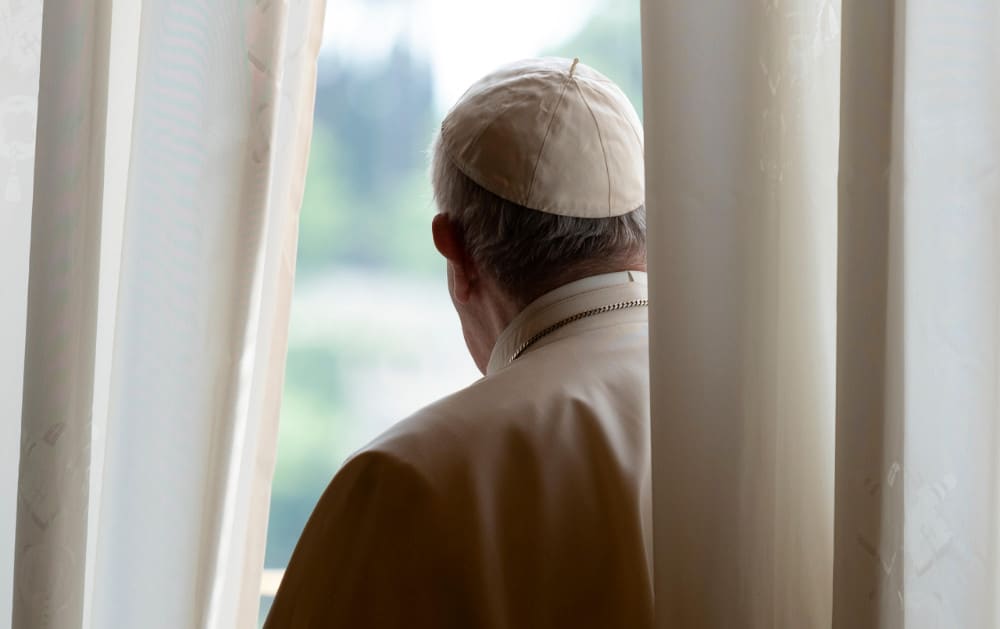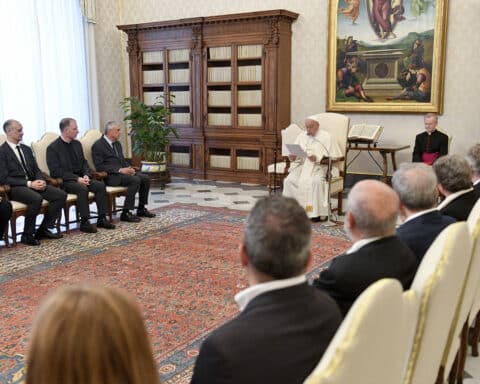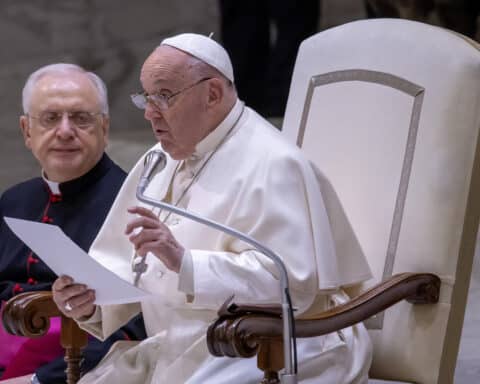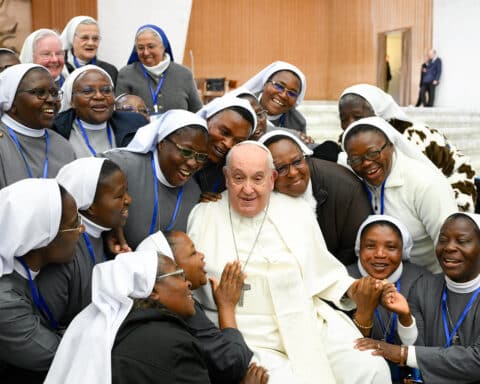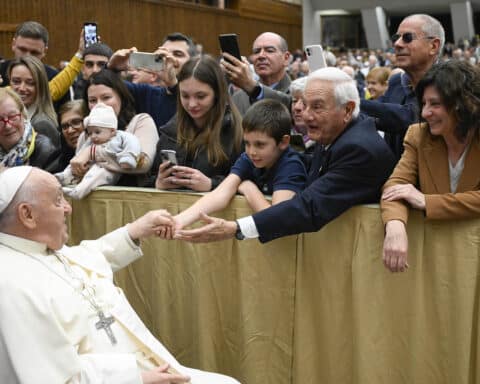Over the course of his nine-plus years as pontiff, Pope Francis has strongly and consistently spoken about the sin of gossip. It is “an act of terrorism, akin to dropping a bomb,” he said in a 2015 homily. It “closes off the unity of the Church,” he noted after one of his Sunday Angelus addresses in 2020, during which he also said that “gossip is a plague more awful than COVID!”
It stands to reason, then, that the Holy Father would wholeheartedly disapprove of the recent chatter — largely coming from professional Catholic commentators, but also from certain sectors of the lay Church — regarding the myriad rumors of his supposed impending resignation.
Pope Francis himself has laid some of the bricks of the foundation upon which this speculation has been built. Early in his pontificate, he called Pope Benedict XVI’s decision to become the first pope to resign in 700 years “courageous” and said, “Benedict should not be considered an exception, but an institution.” In 2014, when the subject of his predecessor’s resignation was brought up by reporters, he said: “You can ask me: ‘What if one day you don’t feel prepared to go on?’ I would do the same!” During a 2015 interview with a Mexican TV station, he made his thoughts even more clear, saying: “I have the feeling that my pontificate will be brief — four or five years; I do not know, even two or three.”
He was 78 then; he’s 85 now, a year removed from being hospitalized longer than expected following colon surgery last summer, and with a bad knee that, at first, presented itself as just a nagging limp. The knee has gotten worse — bad enough that, for the past few months, he’s largely been confined to a wheelchair during his public appearances. Bad enough, also, that it forced the cancellation of his long-planned trip to central Africa in early July, when he was scheduled to visit South Sudan and the Democratic Republic of Congo. It remains to be seen if he’ll be able to make his highly anticipated trip to Canada at the end of July.
If Pope Francis’ ailments caused the retirement winds to swirl again, they became a tornado of rumors in late May when he announced that he would create 21 new cardinals — 16 of whom will be young enough to vote in the next conclave — at a consistory in August, an unusual date to gather in Rome, when the city is, first, sweltering and, second, largely on holiday. Headlines across both Catholic and secular media suggested that the pope was preparing for his imminent departure by stacking the papal electorate with enough self-appointed cardinals to ensure a like-minded successor is chosen.
If that wasn’t enough, the Vatican announced in early June that Pope Francis planned to visit the Italian city of L’Aquila a day after the consistory in order to participate in a ceremony for the Celestian Forgiveness, a centuries-old tradition started by Pope Celestine V, who, coincidentally or not, was the last pope to resign before Benedict did so in 2013.
Now, with all that being said, and regardless of whether Pope Francis is planning on resigning in the coming months, all of this speculation and hand-wringing over the end of his papacy seems unsavory at best and toxic at worst. Innocent curiosity over who the next pope might be is as old as the Church itself, but the motivations these days seem considerably more partisan, pointing toward the reality that politics continues to sink its teeth deeper and deeper into religious arenas.
Of course, we aren’t naive enough to suggest that, when it comes to papal elections, politicking is something new. For centuries, all sides have hoped that the next successor of Peter thinks and worships like they do. If you’re a traditionalist, you’re hoping that Francis’ successor will be, too. And the same goes for progressives. Sadly, it isn’t much different from political elections.
Ahead of the 2020 presidential election, Timothy P. O’Malley, the director of education at the McGrath Institute for Church Life at the University of Notre Dame and a frequent contributor to Our Sunday Visitor, wrote that “politics is about the communion of the city, the cultivating of friendship between men and women in day-to-day life. We, Catholics, must practice this saintly politics, especially now. We must be poor like Christ, mourn with those who mourn, not seek our own will at every cost, remember those who are forgotten, forgive those who offend, recognize our poverty before God, make peace, and be willing to suffer for doing all of this. Everything that we do, every decision we make, every thought we have, must be infused with this beatific constitution.”
The same can be said — and should be said — when it comes to our anxiety or anticipation over who will or won’t succeed Pope Francis. If we truly believe that the Holy Spirit is still actively guiding the Church established by Christ himself, then any time spent obsessing over the pope’s possible resignation — or worrying about where the man who might replace him resides on the political spectrum — is, at best, an exercise in frivolity and, at worst, evidence of a profound lack of faith.
Our Sunday Visitor Editorial Board: Gretchen R. Crowe, Scott P. Richert, Scott Warden, York Young

